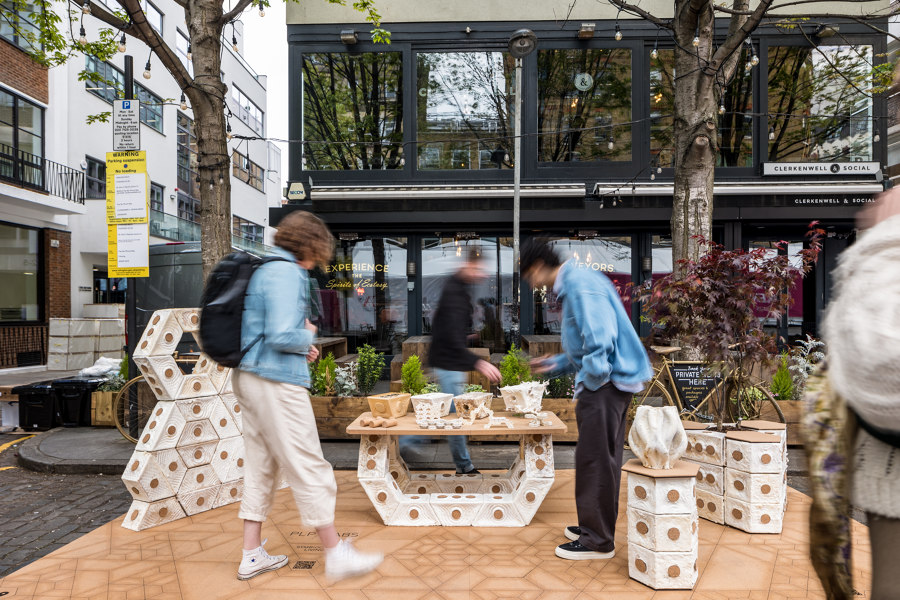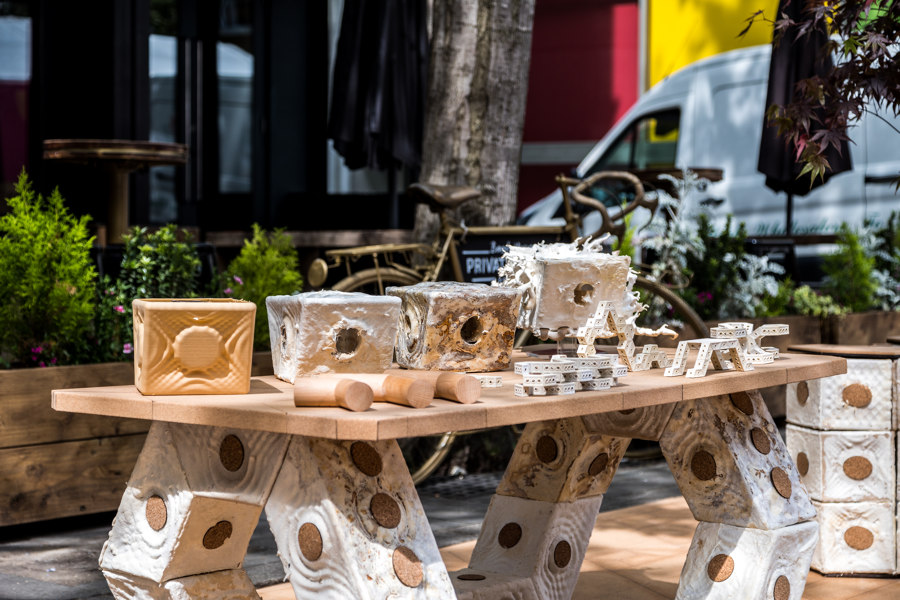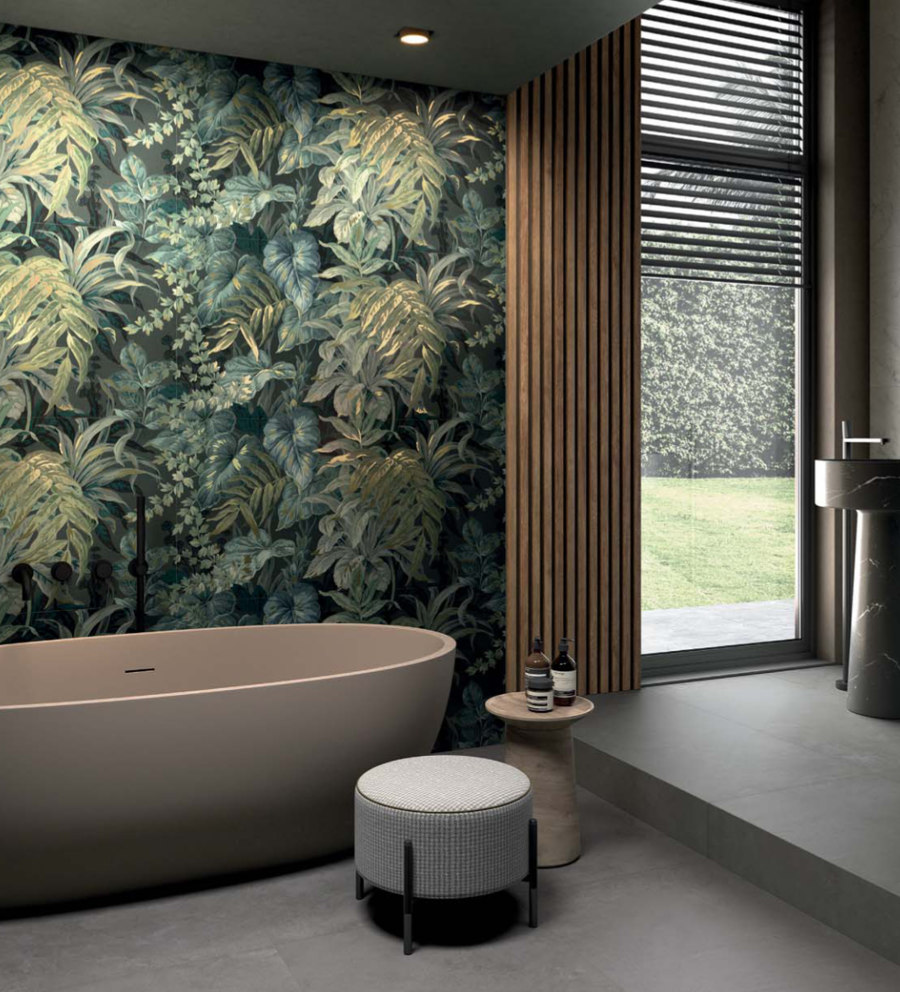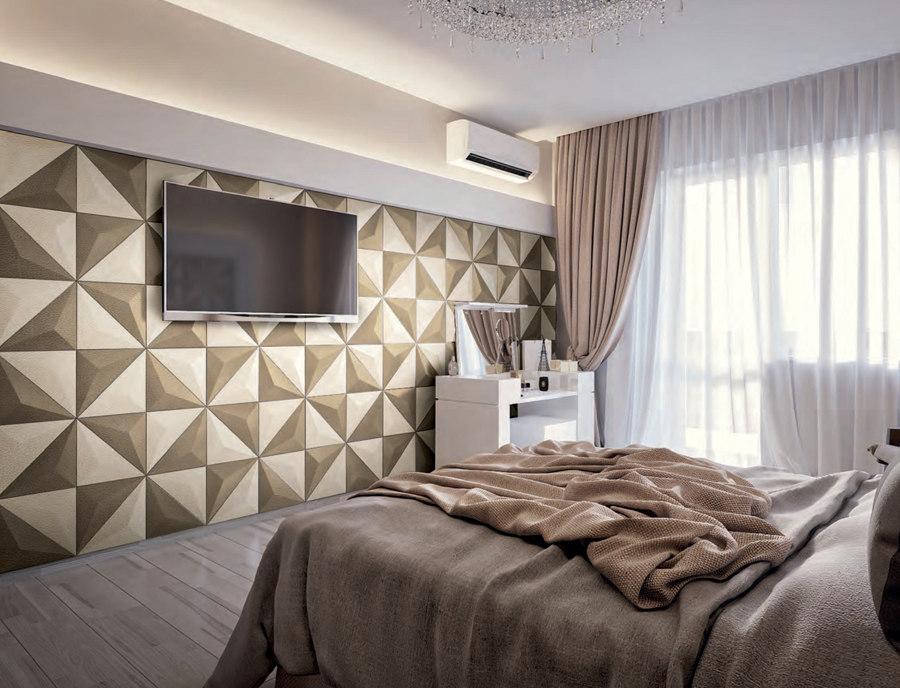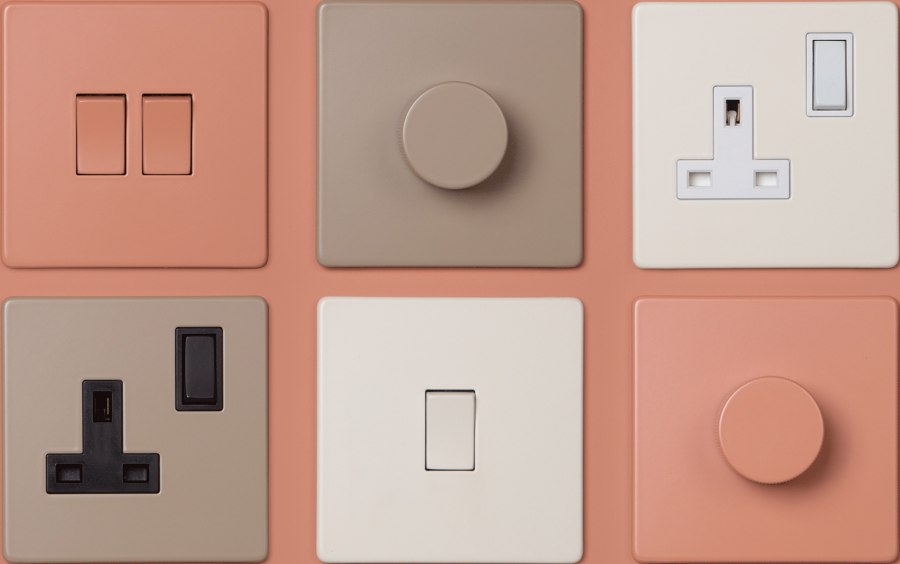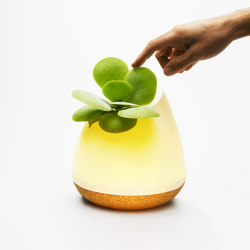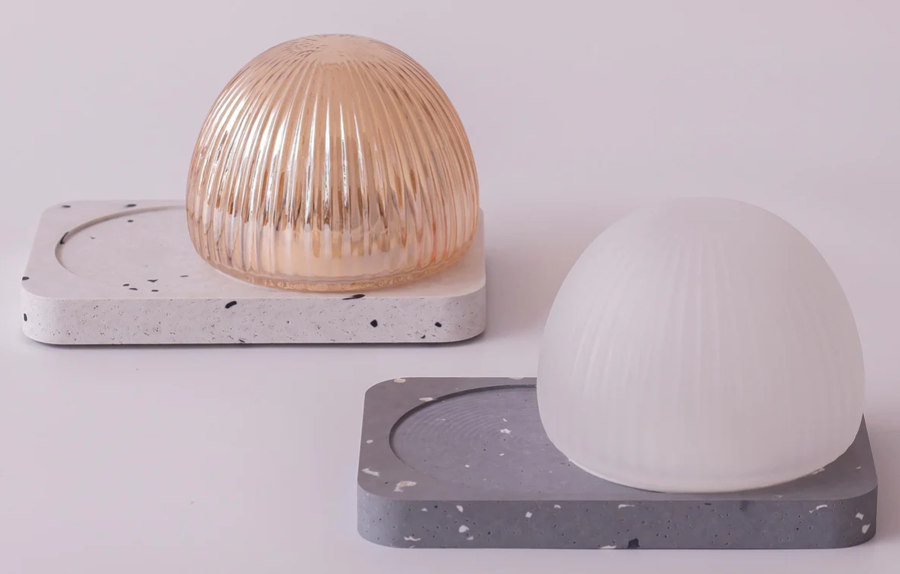Hidden stories from Clerkenwell Design Week 2023
Text by James Wormald
12.06.23
The unheard tales from Clerkenwell’s cobbled streets represent the steep path of innovation in new materials, surfaces and technologies hitting the marketplace.
The imposing presence of Steve Messam’s ‘Gateway’ installation was one of a number of inflated sculptures at Clerkenwell at historic architectural sites, causing no lasting damage. Photo: Sam Frost
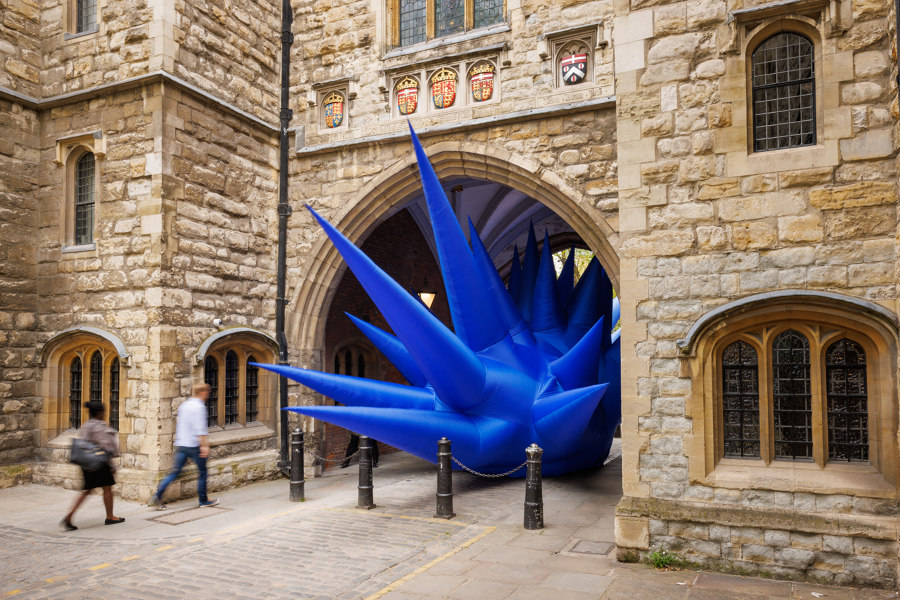
The imposing presence of Steve Messam’s ‘Gateway’ installation was one of a number of inflated sculptures at Clerkenwell at historic architectural sites, causing no lasting damage. Photo: Sam Frost
×It is said, that only by exploring off the beaten track can you find the greatest treasure.
Clerkenwell Design Week sits at the centre of a whirlwind few months on the international design and architecture calendar, but those who choose to sit it out do so at their peril. Although it demands yet another watch reset, a whistle-stop tour of London’s cobbled creative quarter demands attention.
A whistle-stop tour of London’s cobbled creative quarter demands attention
The necessity to save time – and shoe rubber – can mean a PR-dictated diary of truncated tours and talks programmes. But for those who choose to dig a little deeper into the illustrated map, there’s gold to be found in them there streets. Here are some of the most eye-catching innovation stories to emerge from Clerkenwell Design Week 2023.
PLP Architecture presented research into mycelium as a building material at CDW (top, middle) and Morph Bricks introduced the carbon-neutral Bio blocks (bottom). Photos: George Fielding (top, middle)
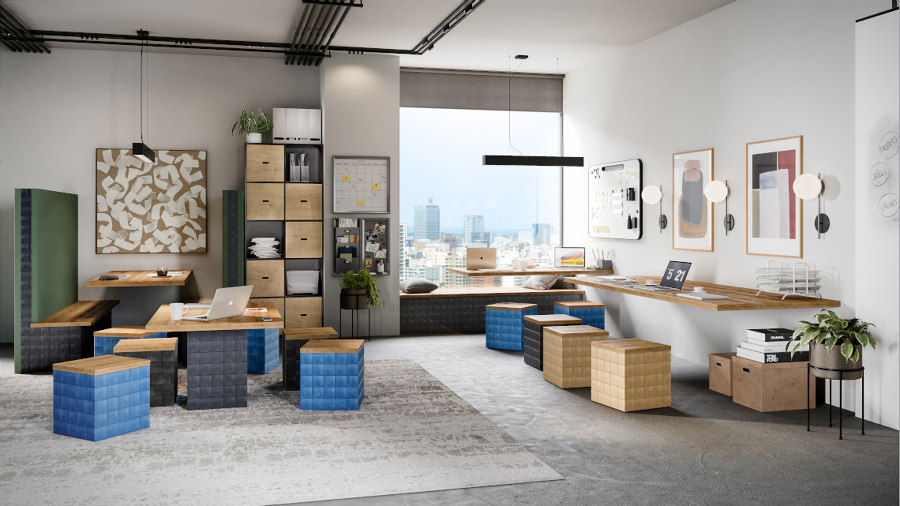
PLP Architecture presented research into mycelium as a building material at CDW (top, middle) and Morph Bricks introduced the carbon-neutral Bio blocks (bottom). Photos: George Fielding (top, middle)
×Growing innovation in building materials
One of the most popular stops on the official tour of Clerkenwell Design Week, was the Symbiocene Living installation by PLP Architecture. Working to ensure ‘humans and nature do not just exist in harmony, but actively collaborate to build a better world,’ explain the research-based architecture practice, the project seeks to familiarise the public with fungi architecture.
Thanks to continuing research into the architectural properties of mycelium, the studio has developed a 3D-printed timber shell that holds the fungal colony in place and also helps to connect the watermelon-sized building blocks together. Although not currently up to load-bearing capacity, researchers hope to continue development to open up the use of mycelium as a multi-storey building material in the future.
Research into the architectural properties of mycelium has developed a 3D-printed timber shell that holds the fungal colony in place
Another brand using development to make architecture more sustainable is Morph bricks. The injection-moulded modular bricks can fit together to form anything from various furniture and interior architecture typologies. Previously made from 100% recycled plastic and completely recyclable themselves, the product boasted carbon neutrality, but with a new range of Morph Bio bricks made from bio-composite, the product now boasts carbon negativity, serving as a method of carbon capture and storage.
La Faenza's nature-inspired wallpaper-print ceramic Crea-LA tiles (top), Architextural's vinyl film wrap in imitation leather (middle) and Graphenstone carbon-absorbing paint (bottom)
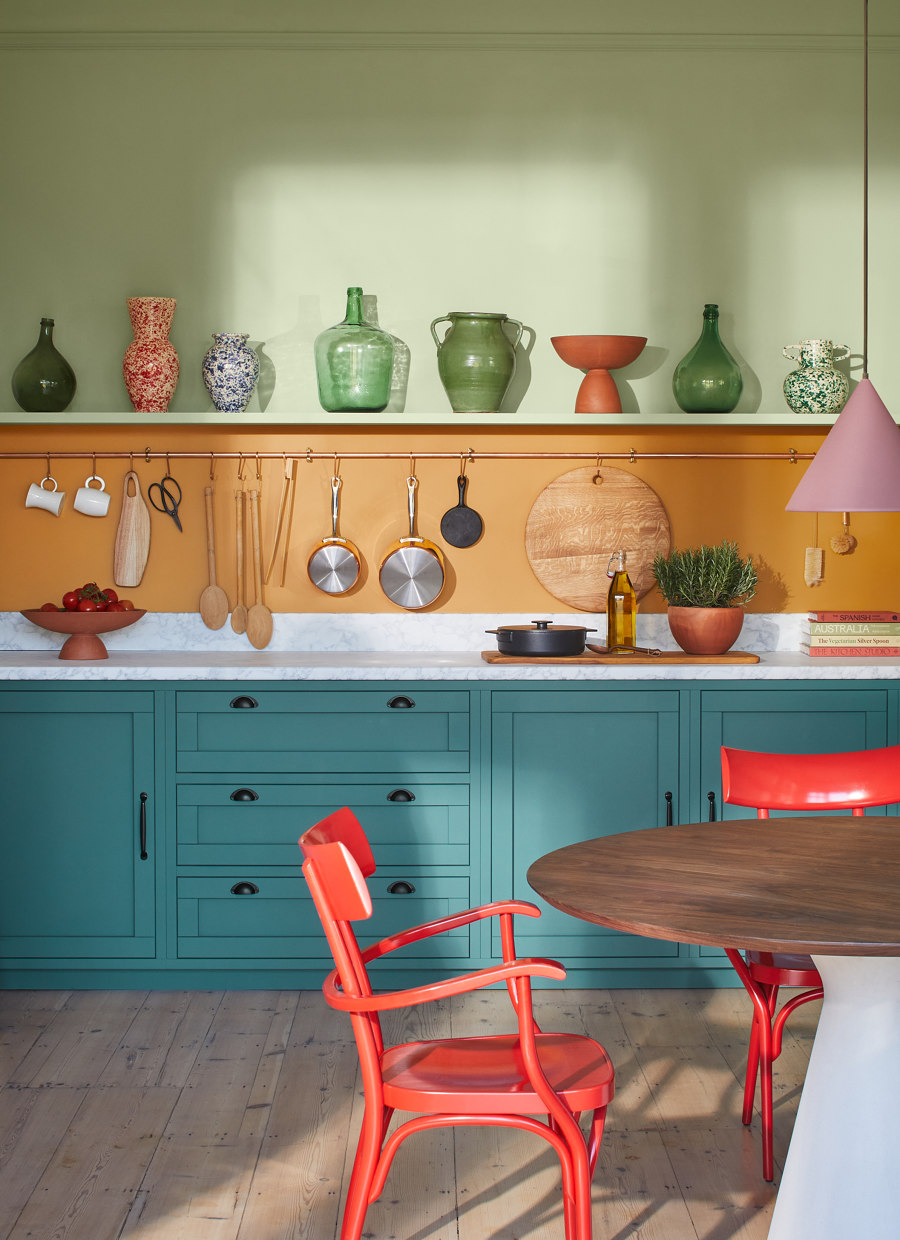
La Faenza's nature-inspired wallpaper-print ceramic Crea-LA tiles (top), Architextural's vinyl film wrap in imitation leather (middle) and Graphenstone carbon-absorbing paint (bottom)
×Making long-term sustainable change instead of scratching surfaces
Sustainability is the buzzword of every conversation at the moment, in design, architecture and just about every other industry, too. And while that’s great for the world’s ever more hopeful climate targets, it’s getting harder to separate paper from plastic when it comes to manufacturers’ efforts to make real change.
In the Ceramics of Italy exhibition, La Faenza introduced a range of porcelain tiles that feature the depth and texture of printed wallcoverings. Taking confidence from the growing popularity of heavily-detailed biophilic patterns, the Crea-LA collection combines classical floral prints with the strength and durability of ceramics. Moving in the other direction, meanwhile, innovative surfaces manufacturer Architextural introduced their series of heat-application, non-PVC vinyl film wraps that give any existing surface, of any shape, the look and feel of stone, wood, marble or any other material alternative.
Through the carbonation process, the paint’s lime base absorbs the same amount of carbon it previously released
The attention-grabbing line ‘absorbs CO2’ dominating Graphenstone's CDW stand makes the paint brand an enticing decorative partner for a contract market full of big names looking to improve their footprint, and make their offices and public spaces healthier, too. The science part is down to the paint’s lime base, which – during the carbonation process occurring when the paint dries – absorbs the same amount of carbon its production previously released. So while it doesn’t claim to be completely carbon negative, the paint is one of the highest-certified sustainable products on the market.
Dowsing + Reynolds's colourful switches and sockets (top) led a vibrant trend in the fixtures market, while the Bioo Lux lamp represented innovation in touch-sensitive switches (bottom)
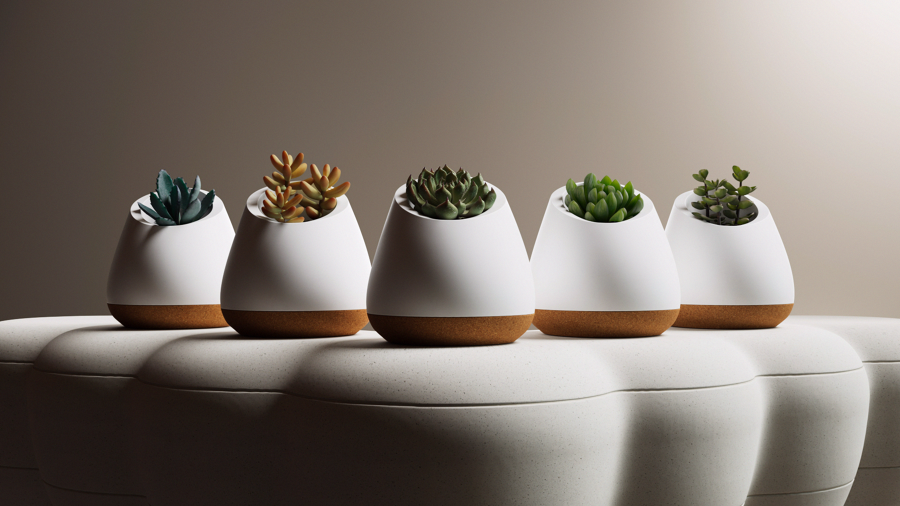
Dowsing + Reynolds's colourful switches and sockets (top) led a vibrant trend in the fixtures market, while the Bioo Lux lamp represented innovation in touch-sensitive switches (bottom)
×Lightbulb moments: technological innovations
Observing the growth of colour in our modern homes, Dowsing + Reynolds and Titian Touch were two of a number of manufacturers at Clerkenwell Design Week to highlight the vibrant new colours coming to their collections. With drawers full of eye-popping colours on show, Dowsing + Reynolds happily informed me they’d even paint a client’s existing sockets and switches in their colour of choice too, meaning it’s not only new buyers who benefit. Titian Touch’s touchplate light control system, meanwhile, revolutionises the light switch, not just with touch-sensitive technology, but by applying it in such colourful, whimsical forms.
Stand-out innovation in lighting control included Robin Lamps' moving dome light, the Roi lamp (top), and Bioo's touch-control succulent lights, using the natural connectivity of the plant itself (bottom)
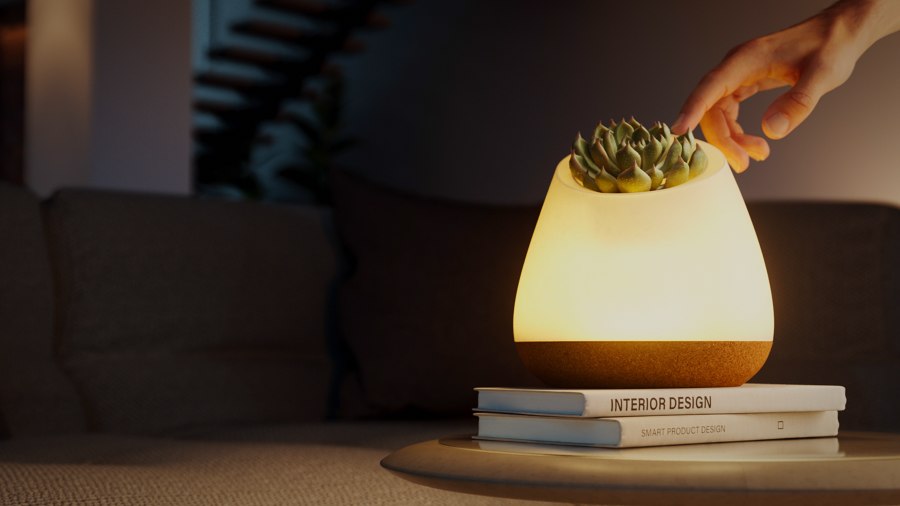
Stand-out innovation in lighting control included Robin Lamps' moving dome light, the Roi lamp (top), and Bioo's touch-control succulent lights, using the natural connectivity of the plant itself (bottom)
×The moveable, rechargeable, recycled plastic Roi lamp from Robin Lamps stood out not because of these functional and sustainable features, but due to its playful operation where users move the glass globe encasing the light source, to turn it on or off. And while I’ve experienced touch-sensitive light-housings before, I’ve never experienced anything quite like the Bioo Lux from agritech design studio Bioo. The system utilises the conductivity of succulent plants to transform them into switches. As a proof-of-concept product, the featured lamp can turn on or off with a touch of its living form, but the simple act can also operate any electrical product from lights to screens or music.
The system utilises the conductivity of succulent plants to transform them into switches
Talking about sound systems with seemingly invisible switches, how about those with invisible speakers, too? Amina’s invisible speaker system sees slim, high-quality speakers covered with wood, skimmed with plaster or even milled in behind marble to hide where the perfect sound is coming from. With speaker technology effectively unchanged for almost 150 years, the long-lasting sound solution allows for any change of furniture decor and style, without changing the tune.
© Architonic
Head to the Architonic Magazine for more insights on the latest products, trends and practices in architecture and design, or find inspiration in a whole world of projects from around the globe through ArchDaily’s architecture catalogue.

